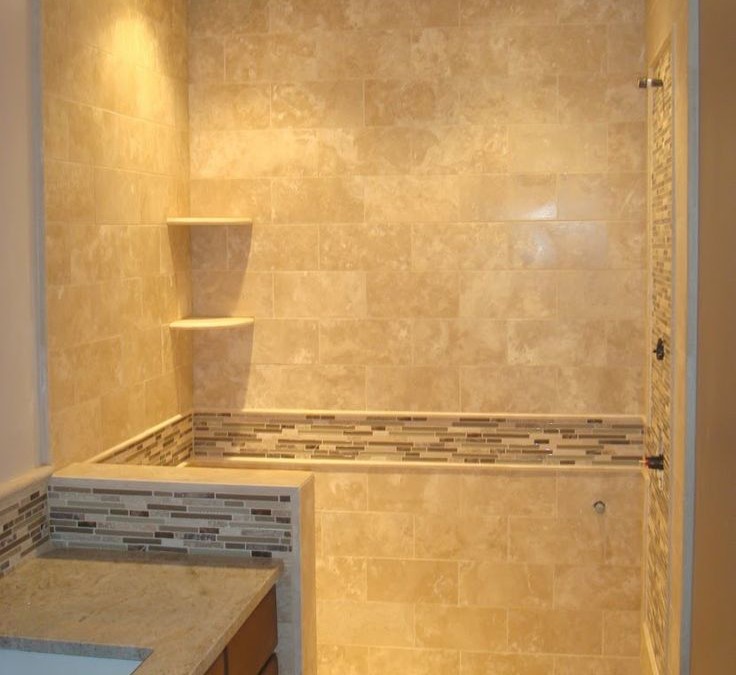Are you planning a bathroom remodel this year? With so many materials to choose from, let’s compare two of the most popular and durable hard surfaces: natural stone and porcelain tile. Porcelain tiles are man-made materials that may look like natural stone, but there are differences to consider. Here are a few tips to help you decide which one you prefer.
Both materials are of excellent quality and durability. Natural stone is varied in color and no two pieces ever look the same. It is unique and timeless. Many porcelain tiles are made to mimic natural stone. They are a bit controlled in the range and variation, however many people have difficulty distinguishing between natural stone and porcelain tile due to advances in design technology.
Natural stone will require periodic maintenance. It needs to be sealed once a year, and it can be more expensive to install due to the fact that some natural stones vary In thickness, therefore it is more time consuming to install. Porcelain tile requires no extended upkeep, is virtually maintenance free, and can be less expensive to install.
The application (for use in a bathroom shower, floor, etc.) and the traffic levels it will experience will determine the type of tile you should select. There are different levels of wear and durability – our staff can guide you toward your best options. There are also budgetary factors to consider, and a porcelain is generally more budget-friendly. If maintenance is a concern, porcelain may be a better choice for your home.
For non-rectified tiles, 1/8″ is the smallest grout joint we recommend for ceramic/porcelain tile. For rectified stone that has a straight edge, 1/8″ to 1/16″ grout joint is recommended. If the stone is tumbled, then your grout joint will be larger. Many factors determine the size of the grout joint, therefore it is important to discuss this with your tile installer.
For everyday cleaning, simply use a Ph-balanced natural stone cleaner. Natural stone needs to be sealed after installation. There are many sealers on the market that are made specifically for natural stone.

